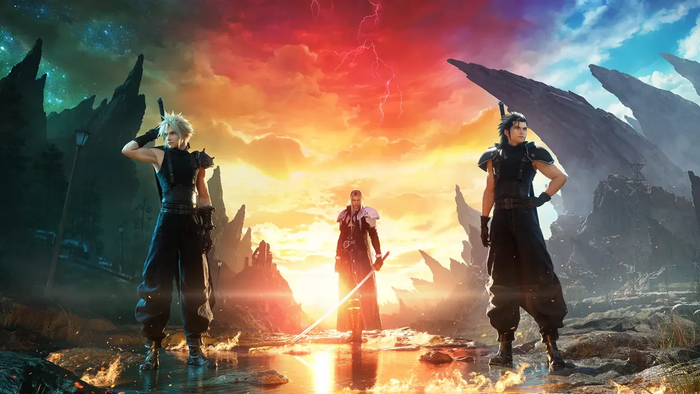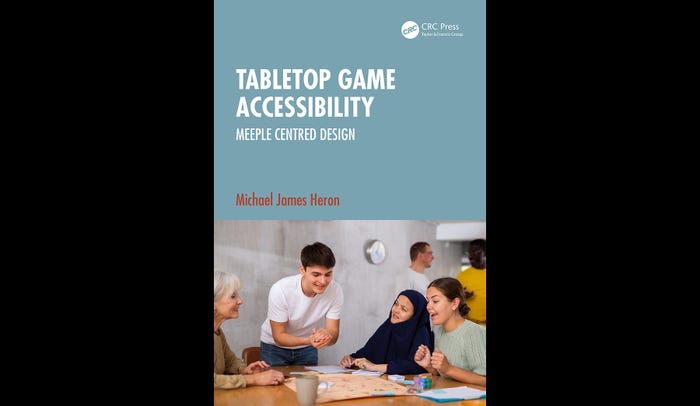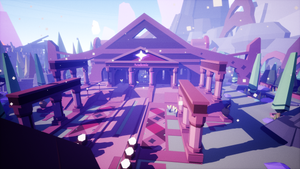A rare look into crowdfunding in Japan
In this interview reprinted from Gamasutra's sister site <a href="http://indiegames.com/index.html">IndieGames</a>, Japanese indies Team Grand Slam take readers inside their local crowdfunding scene.

In this interview reprinted from Gamasutra's sister site IndieGames, Japanese indies Team Grand Slam take readers inside their local crowdfunding scene. Team Grand Slam, a collection of veteran Japanese developers behind the upcoming free-to-play Monken, recently ran a successful crowdfunding campaign on a Japanese platform called Campfire. They raised just under ¥2.5 million ($25,000 USD) for the development of a game they plan to release under a Creative Commons license. That may not seem like much money compared to the amounts raised by developers like Double Fine and Obsidian, but it's the largest amount raised for a game on this Japanese crowdfunding site to date. We mentioned this back in March, but Monken is an upcoming free-to-play game in which the player is fighting terrorists - with a crane. Inspired by nationwide Japapnese news coverage of real events, the point of the game is to bash a building with a wrecking ball until the terrorist inside is killed, freeing his hostages and allowing the player to move on to the next terrorist-held building. There have been few opportunities to look into the crowdfunding of games in Japan, so we're glad that Fumio Kurokawa has opened up to us. In addition to discussing the shocking news coverage that led him to design a game based on the events portrayed in Japan's first TV news marathon, he tlaks about his team's plans to release the game under a Creative Commons BY-NC-SA license. What games from Japan (or outside) are similar to Monken? As far as I know there is nothing like Monken. The game's theme is to smash and destroy to rescue the hostages. If I absolutely have to pick something, it has an essence of destruction and catharsis like Angry Birds, but the gameplay is different. The Asama-Sanso incident seems very serious. Why did you choose Monken as your first game? The Asama-Sanso incident happened when I was 12 years old (1972). It was a hot topic in Japan, and I was shocked when I saw and read the news. Someday, I thought, I want to make historical incidents into games. Do you know the word "newsgame"? Is Monken a newsgame? If no, what kind of game is Monken? This is the first time I have heard anything about this category. I think there are perhaps no games in Japan classified as such. Maybe games [based on] the Records of the Three Kingdoms or Japan's Warring States Period fit, but in Japan these are generally called simulation games. Maybe you could call a newsgame a simulation game, but I think you could consider it a specific type of simulation game. Newsgames are made to make people think about things like modern society, public issues, and current events. The category includes both satirical and serious games. Was Monken made for that kind of purpose? Was it just inspired by the Asama-Sanso incident? It seems to me that newsgames are perhaps defined as games designed around events or accidents. In Monken's case, the theme isn't so firm as that. Certainly, the game concept for Monken itself came from the images I saw of the 1972 Asama-Sanso incident, a conflict between a group dreaming of a revolution organized by students and the power-wielding police. The Asama-Sanso lodge was destroyed by a wrecking ball. But Monken doesn't come anywhere near the facts of the incident. The game's situation is entirely developed from the, "What is this?!" impression that I, Fumio Kurokawa, had as a 12 year-old witness to the television broadcast. At the time, with the incident being relayed on TV, all of Japan held its breath and maintained a watch over how the situation progressed. Incidents and the media - watching them and the nature of their relationship is the theme of this game. Maybe in that sense you could call it a newsgame.  For how long have you developed Monken? The original design was written up on July 7th, 2012. It was simple and made by me. After that, we discussed it and filled out the details over the course of a month or two. [Ryuji] Noguchi started on the character art around September. Game programming began around October. There are a lot of crowdfunding sites. Why did you choose Campfire? There are about 10 crowdfunding sites of varying size in Japan right now. Of those, Campfire has a rich variety of funding categories to attract potential backers. Granted, they all have their success [stories], but the site that many people will see has plenty of advertising value. Besides, another site [for example] has a lot of projects for things like contributing to society (i.e. disaster recovery), and compared to sites like that we chose the more entertainment-heavy Campfire. Note: As of this writing, Campfire's project categories are Art, Products, Journalism, Photography, Books & Comics, Sports, Social Contributions, Music, Technology, Community, Fashion, Anime, Business, Theatre & Dance, Games, Food, Film & Movies, Performance, and Comedy. For how long did you run your Campfire campaign? 60 days. From April 22nd to June 21st. Since you raised ¥2,490,500 (about $24,905 US) from 201 people, the average was ¥12,390 (about $123.90 US) per person. Looking at your Campfire page, roughly 2/3 of your backers gave ¥10,000 (about $100 US) or more. About half gave exactly ¥10,000. Were you surprised by that? Yes. I was surprised. However, ¥10,000 backers are getting a special Monken T-shirt as a thank you, and I can't help but wonder if that didn't multiply the results. I think it's similar for foreign cases. I felt like it was easier to get backers with tangible goods and backer-only rewards. It was the same with the OUYA on Kickstarter. In short, it felt like the, "If I can get a commemorative T-shirt, then I'll donate," [mentality] made it easier. When campaigns run through platforms such as Kickstarter end, it's common for there to be people who can't or won't pay, and the money developers actually receive is a little less. Did you have that problem with Monken? We didn't have that problem. We're scheduled to receive all the funds.
For how long have you developed Monken? The original design was written up on July 7th, 2012. It was simple and made by me. After that, we discussed it and filled out the details over the course of a month or two. [Ryuji] Noguchi started on the character art around September. Game programming began around October. There are a lot of crowdfunding sites. Why did you choose Campfire? There are about 10 crowdfunding sites of varying size in Japan right now. Of those, Campfire has a rich variety of funding categories to attract potential backers. Granted, they all have their success [stories], but the site that many people will see has plenty of advertising value. Besides, another site [for example] has a lot of projects for things like contributing to society (i.e. disaster recovery), and compared to sites like that we chose the more entertainment-heavy Campfire. Note: As of this writing, Campfire's project categories are Art, Products, Journalism, Photography, Books & Comics, Sports, Social Contributions, Music, Technology, Community, Fashion, Anime, Business, Theatre & Dance, Games, Food, Film & Movies, Performance, and Comedy. For how long did you run your Campfire campaign? 60 days. From April 22nd to June 21st. Since you raised ¥2,490,500 (about $24,905 US) from 201 people, the average was ¥12,390 (about $123.90 US) per person. Looking at your Campfire page, roughly 2/3 of your backers gave ¥10,000 (about $100 US) or more. About half gave exactly ¥10,000. Were you surprised by that? Yes. I was surprised. However, ¥10,000 backers are getting a special Monken T-shirt as a thank you, and I can't help but wonder if that didn't multiply the results. I think it's similar for foreign cases. I felt like it was easier to get backers with tangible goods and backer-only rewards. It was the same with the OUYA on Kickstarter. In short, it felt like the, "If I can get a commemorative T-shirt, then I'll donate," [mentality] made it easier. When campaigns run through platforms such as Kickstarter end, it's common for there to be people who can't or won't pay, and the money developers actually receive is a little less. Did you have that problem with Monken? We didn't have that problem. We're scheduled to receive all the funds.  Did you talk to publishers or others about funding or helping this game? What did they say? Yes, of course, we talked to many companies. However, they want card games with a collection/luck element to them. You know, something with profitability along the lines of Rage of Bahamut. And then they told us we'd have to [deal with] things like key performance indicators and affiliated policies designed to raise profits. We felt that in order to make the game we want to make, we needed to take responsibility for it and devote ourselves to doing the best we can. What was the biggest challenge you took on during the campaign? After about 30 days, when donations slowed down, we began our live streams on Niconico Video. Every Wednesday night we developers got together and streamed for about 2 hours. Because of this, I think, our natural voices helped raise interest in the game and build a fan community. Furthermore, on the last day of the funding campaign we streamed from 8 PM to midnight and broadcast the final countdown. That was also extremely memorable. Clearly we got results... Then there was one extremely important thing, which was updating our Activity Report (our blog) every day without fail to appeal to backers and potential backers. What's the biggest challenge you've taken on since the campaign ended? We're concentrating on producing the game. Other than that we're preparing to hold a production joint ownership meeting, the Monken Forum. This will be an actual meeting of developers and backers under one roof for announcements about the state of development and the discussion of ideas. We plan to hold it on Saturday, July 27th. What is the vision for the final game? Launching the game in Japan is the first step. After that, we're planning to launch internationally. This is just my vision, but I want to see players and developers doing things like modding the game and adding new characters and stages the way Linux OS users do. I think it would be great if it could expand like Minecraft. It seems you're going distribute Monken under a Creative Commons BY-NC-SA license. Does that mean you're going to show your source code to everyone on the internet? Will you distribute an SDK? Yes, we will. The game isn't finished yet, but use of the graphics and sound under the CC license has already begun. Some derivative works have already begun. Once the game is complete, we plan to open the source code to the public... Enthusiasts have already produced things like illustrations of Famicom packaging (not real), mock screenshots, and posters.
Did you talk to publishers or others about funding or helping this game? What did they say? Yes, of course, we talked to many companies. However, they want card games with a collection/luck element to them. You know, something with profitability along the lines of Rage of Bahamut. And then they told us we'd have to [deal with] things like key performance indicators and affiliated policies designed to raise profits. We felt that in order to make the game we want to make, we needed to take responsibility for it and devote ourselves to doing the best we can. What was the biggest challenge you took on during the campaign? After about 30 days, when donations slowed down, we began our live streams on Niconico Video. Every Wednesday night we developers got together and streamed for about 2 hours. Because of this, I think, our natural voices helped raise interest in the game and build a fan community. Furthermore, on the last day of the funding campaign we streamed from 8 PM to midnight and broadcast the final countdown. That was also extremely memorable. Clearly we got results... Then there was one extremely important thing, which was updating our Activity Report (our blog) every day without fail to appeal to backers and potential backers. What's the biggest challenge you've taken on since the campaign ended? We're concentrating on producing the game. Other than that we're preparing to hold a production joint ownership meeting, the Monken Forum. This will be an actual meeting of developers and backers under one roof for announcements about the state of development and the discussion of ideas. We plan to hold it on Saturday, July 27th. What is the vision for the final game? Launching the game in Japan is the first step. After that, we're planning to launch internationally. This is just my vision, but I want to see players and developers doing things like modding the game and adding new characters and stages the way Linux OS users do. I think it would be great if it could expand like Minecraft. It seems you're going distribute Monken under a Creative Commons BY-NC-SA license. Does that mean you're going to show your source code to everyone on the internet? Will you distribute an SDK? Yes, we will. The game isn't finished yet, but use of the graphics and sound under the CC license has already begun. Some derivative works have already begun. Once the game is complete, we plan to open the source code to the public... Enthusiasts have already produced things like illustrations of Famicom packaging (not real), mock screenshots, and posters.  Will people who want to make content for Monken need to be able to program? What programing language(s) will be needed/usable with Monken? Modifying parameters will require experience with Unity, but I look forward to taking advantage of this to transform the game into something better. Still, swapping out characters, sounds, and the like can be done without any programming skill. Will Team Grand Slam facilitate user-made content via the game's interface or a web site? Yes, we want to actively support the things users step up to create. We'll make announcements in places like our public homepage and on our Facebook support page, the Monken Switchyard (Japanese link). What other important events should become video games? Personally, I'm interested in the 300 million yen robbery. It's one of the Showa period's most famous incidents, but there were no injured or victims, and even now, with the statute of limitations passed, the identities of the perpetrators have yet to be determined. In addition, a game made by my fellow Monken team members, Mr. Iida and Mr. Noguchi, called Discipline: Birth of an Empire (Japanese link) is an adventure game set in a fictitious correctional facility with characters that bring to mind people related to real events. It was was one of the Jury Selections at the 2009 Japan Media Arts Festival. Note: He also linked to information about the Aum Shinrikyo attacks without talking about them. Do you have any opinions for developers for the future? Up until now, family games have been mainstream in Japan and many publishers have welcomed them with open arms, but I think the methods and challenges of game development are changing. Japan's family game makers and publishers are reaching their limits. The number of hit games is limited, and the number of users who are tired of those games is gradually increasing. Maybe the future is in indies like us who make their own game designs even if it means financing the development ourselves. Is there a release date set for Monken? We want to have it out by this fall. Please root for us.
Will people who want to make content for Monken need to be able to program? What programing language(s) will be needed/usable with Monken? Modifying parameters will require experience with Unity, but I look forward to taking advantage of this to transform the game into something better. Still, swapping out characters, sounds, and the like can be done without any programming skill. Will Team Grand Slam facilitate user-made content via the game's interface or a web site? Yes, we want to actively support the things users step up to create. We'll make announcements in places like our public homepage and on our Facebook support page, the Monken Switchyard (Japanese link). What other important events should become video games? Personally, I'm interested in the 300 million yen robbery. It's one of the Showa period's most famous incidents, but there were no injured or victims, and even now, with the statute of limitations passed, the identities of the perpetrators have yet to be determined. In addition, a game made by my fellow Monken team members, Mr. Iida and Mr. Noguchi, called Discipline: Birth of an Empire (Japanese link) is an adventure game set in a fictitious correctional facility with characters that bring to mind people related to real events. It was was one of the Jury Selections at the 2009 Japan Media Arts Festival. Note: He also linked to information about the Aum Shinrikyo attacks without talking about them. Do you have any opinions for developers for the future? Up until now, family games have been mainstream in Japan and many publishers have welcomed them with open arms, but I think the methods and challenges of game development are changing. Japan's family game makers and publishers are reaching their limits. The number of hit games is limited, and the number of users who are tired of those games is gradually increasing. Maybe the future is in indies like us who make their own game designs even if it means financing the development ourselves. Is there a release date set for Monken? We want to have it out by this fall. Please root for us.
About the Author(s)
You May Also Like













